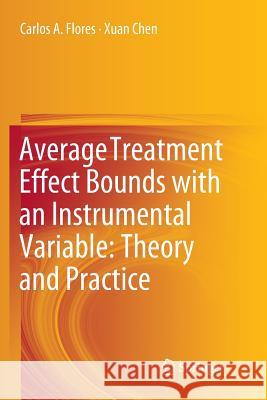Average Treatment Effect Bounds with an Instrumental Variable: Theory and Practice » książka
topmenu
Average Treatment Effect Bounds with an Instrumental Variable: Theory and Practice
ISBN-13: 9789811347191 / Angielski / Miękka / 2019 / 104 str.
Kategorie:
Kategorie BISAC:
Wydawca:
Springer
Język:
Angielski
ISBN-13:
9789811347191
Rok wydania:
2019
Wydanie:
Softcover Repri
Ilość stron:
104
Waga:
0.18 kg
Wymiary:
23.39 x 15.6 x 0.69
Oprawa:
Miękka
Wolumenów:
01
Dodatkowe informacje:
Wydanie ilustrowane











